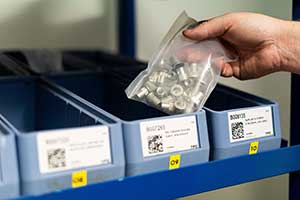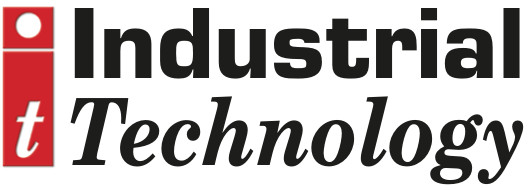
Posted to News on 28th Sep 2020, 00:00
Vendor managed inventory for manufacturing excellence
Brian Vince, group quality manager at TFC, outlines how inventory quality can be assured by vendor managed inventory (VMI) suppliers.

A recent Deloitte report suggests that automotive manufacturers spend on average over £70,000 per site every year to comply with quality management system requirements. While this is worth spending to avoid the myriad of visible and hidden costs of poor-quality manufacturing, it doesn’t all have to be an in-house burden. Delegating quality measures across the supply chain can add value while streamlining processes. Within aerospace, oil and gas, automotive and medical industries, where rigorous quality is vital for safety-critical and compliance reasons, this can result in significant savings as well as confidence that products are fit for purpose and available when required.
Split between two processes, quality management includes the two main areas of quality assurance and quality control. Quality assurance focusses on proactively preventing the introduction of defects, such as monitoring and optimising processes, whereas quality control is a method of checking that products meet the agreed standards or specifications. Both are central to ensuring quality end products.
Quality assurance
As the first line of defence for manufacturers, quality assurance proactively sets up processes and procedures which cover all product requirements. Quality assurance ensures essential controls are understood and in place, and goods can be verified before the items are received. This vital review of the requirements at the beginning of the supply chain reduces the chance of future problems emerging, saving the manufacturer’s time and money.
In VMI systems, clients entrust all inventory management to one supplier, leading to a closer business relationship as well as making it easier to understand customer needs and react quickly to any demands when they arrive. Transparency is essential and serves as a tool to reduce unnecessary checks, entrusting risk management to those directly responsible for the design of components and processes.
While trust enables a reduction in unnecessary checks and costs, achieving it requires substantial knowledge of the manufacturing market. VMI providers already have established relationships with trustworthy and approved supply chains. They may also perform many of the necessary quality checks in house, so it is worth establishing the capabilities of your provider and understanding its commitment to quality before investing in a VMI system. For example, do they meet the quality conditions of ISO9001, and, for aerospace AS 9100:2016/9120:2016 standards? Can they provide correct certification, verify all critical areas as required and ensure stable stock levels? Can they provide ISIR, FAIRs or PPAP documents as required?
Quality control
With quality assurance being a proactive approach to quality, quality control is reactive. Quality Control is where manufacturers evaluate products from the production supply chain before acceptance; these tests can be visual checks against gold-standard product or by the completion of detailed records verifying product against drawings/specifications. However, quality control can only reduce risk to a certain extent. If a manufacturer often receives late parts or finds themselves rejecting many parts, it might be time to think about changing the approach to inventory management, for example by changing supplier or turning to VMI.
VMI suppliers help manufacturers manage quality control through on-site surveys and ongoing reviews, ensuring a full understanding of the manufacturer’s needs, both in regards to specifications and quantity. Any small variation outside of agreed specification or quantity, whether caused externally or internally, could lead automated systems that rely on stable supplies to malfunction. Ensuring quality standards are recognised, controlled and met, is therefore not only a matter of competitiveness, but a means to reduce downtime and unnecessary costs.
Specialised equipment
In-house experts can enhance quality management systems with specialised equipment for testing. For example, compression testing enables engineers to determine the load and deflection characteristics of springs before releasing them to production. Similar tests can be used to establish the properties of all stock, from highly accurate digital measuring to the material hardness of any given product.
On-site testing equipment enables manufacturers to verify that critical characteristics such as hardness, smoothness and maximum load capacity are met before acceptance of their inventory. Businesses who pair quality assurance and quality control operate more efficient and valuable production lines.
Manufacturers may not have all the necessary testing equipment and will often require lengthy verification of their inventory by the use of third parties, a process that can take months. Because TFC has a dedicated testing centre in Heathfield, where it verifies all agreed quality specifications upon the parts it supplies to VMI customers, manufacturers do not have to worry about in-house quality checking when components arrive on their line.
This verification allows not only a reduction in waiting times that could halt a business’ manufacturing process, but will ensure cost savings and reduce downtimes and improve the efficiency of the manufacturing process.









